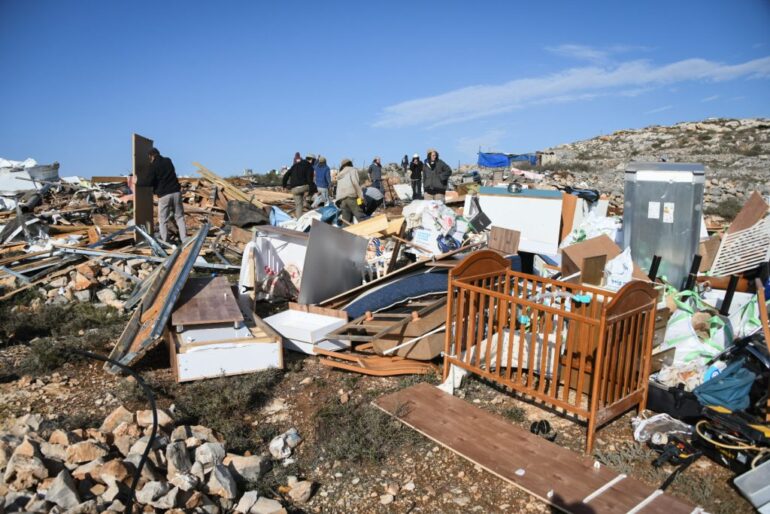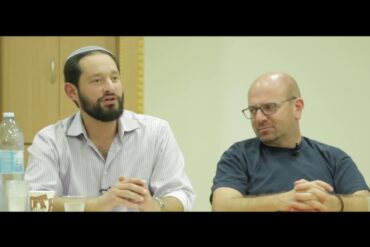Israeli forces destroyed two homes in the Jewish Qumi Ori village near Yitzhar Wednesday morning, a week after Israel’s Supreme Court rejected a petition to cancel of demolition orders.
Jews from communities throughout northern Samaria attempted to reach the village to help residents resist the destruction but security forces closed off the mountain with road barriers prior to the demolitions.
An Israeli official threatened local residents upon the early morning arrival of security forces by announcing that “any attempt to harm the security forces who are carrying out their work under the law for the evacuation and demolition of the ‘illegal outpost’ will be met with zero tolerance and determination on the part of the soldiers.”
“Residents must show responsibility and not be drawn to provocation and violence.”
Yitzhar spokesman Avraham Binyamin responded that “the secretariat of the [Yitzhar] community condemns the destruction of the homes of the families,” adding that the demolition would not pass quietly and demanding “that security forces refrain from opening a cycle of violence.”
Last October, Israeli forces declared Qumi Ori a closed military zone after clashes erupted between soldiers and local residents.
Local Jewish leaders at the time demonstrated impressive restraint, working to deescalate tensions and restore calm, while politicians and military commanders attempted to use the state power at their disposal to show resisting teenagers who’s boss.
Israeli political leaders have long claimed house demolitions to serve as a deterrent to violence from both Jewish and Palestinian residents of the West Bank.
But house demolitions, whether directed against Jews or Palestinians, are not only inhumane but also counterproductive as such policies draw the State of Israel deeper into the oppressor role Jews desperately need to break free from.
Rather than employing state violence to flex their muscles to a few dozen teenagers, security forces should understand that in conflicts between themselves and a bunch of kids, the power dynamics overwhelmingly favor the state and place the bulk of responsibility for deescalating tensions on them.
Rather than focusing on “order” or the “rule of law” as so many political figures often do in their statements against Yitzhar and the “hilltop youth” subculture, our elected officials should concern themselves with ensuring justice throughout the land for all peoples living under their control.
Qumi Ori, Yitzhar and many of the surrounding Jewish mountaintop villages are largely populated by activists who grew up on the front lines of an ethnic conflict and have been radicalized through experiences of police brutality and politically-motivated house demolitions. These communities are constantly demonized by the media and taught not to expect fair treatment within the existing power structures of the state.
In fact, these Jewish radicals express almost the same criticisms for the State of Israel as their Palestinian activist counterparts, making them the Israelis best suited to lead reconciliation efforts. The major challenge before us will of course be pushing these radical Jews into the peacemaker role.





